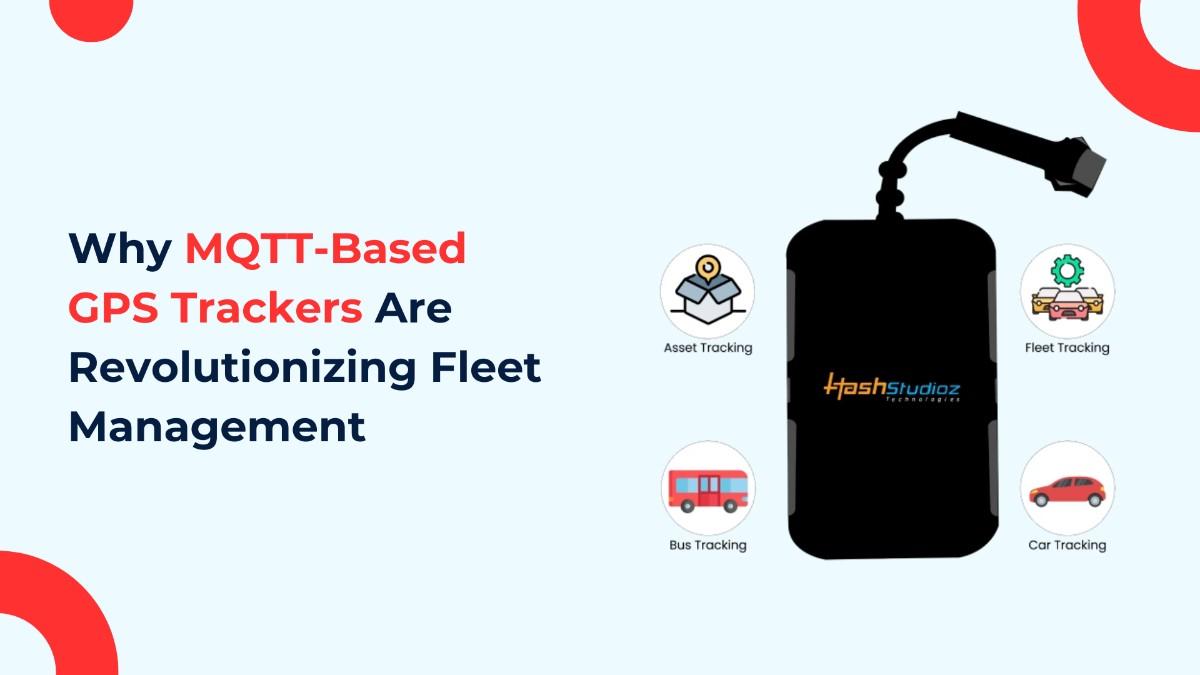


Discover how MQTT GPS Fleet Management is transforming tracking with real-time data, cost efficiency, and improved logistics for businesses.
Fleet management has always depended on accurate location data, reliable communication, and real-time monitoring. Yet, traditional GPS tracking systems often suffer from high data costs, slow updates, and unreliable connectivity in remote areas. According to a report from MarketsandMarkets, the global fleet management market is projected to reach $55 billion by 2030, growing at a CAGR of over 15%. This growth is being fueled by smarter, more efficient tracking solutions.
One technology driving this shift is the MQTT-Based GPS Tracker. By combining GPS tracking with the MQTT (Message Queuing Telemetry Transport) protocol, fleets can now transmit data faster, more reliably, and at lower costs. For logistics companies, delivery services, and public transportation operators, MQTT is more than just a communication protocol—it’s becoming the backbone of modern fleet management.
This article explores how MQTT-based tracking works, why it outperforms traditional systems, and how it’s changing fleet operations worldwide.
Global Positioning System (GPS) devices have long been the foundation of vehicle tracking. By receiving satellite signals, GPS trackers determine a vehicle’s exact location and transmit that data to central servers.
For fleet managers, this information provides critical insights:
While effective, traditional GPS trackers often transmit data over HTTP or SMS. These methods are resource-heavy, slow, and prone to packet loss—especially in areas with poor network coverage. This is where MQTT changes the game.
MQTT stands for Message Queuing Telemetry Transport. Originally designed by IBM for oil pipeline monitoring, it has become the standard protocol for Internet of Things (IoT) communication.
MQTT is lightweight, meaning it consumes less bandwidth and works efficiently even on unstable networks. It uses a publish/subscribe model, where devices (trackers) publish messages to a broker, and subscribers (fleet management systems) receive updates instantly.
Key features of MQTT include:
For GPS tracking, this means vehicles can send frequent location updates without straining networks or increasing costs.
An mqtt gps tracker integrates traditional GPS hardware with MQTT communication. The process involves several steps:
Unlike traditional systems that require constant polling, MQTT ensures updates are pushed only when changes occur. This reduces unnecessary traffic and improves efficiency.
MQTT provides near-instantaneous updates. In high-demand industries like courier services, where a delivery status can impact customer satisfaction, this responsiveness is invaluable.
Conventional trackers often waste bandwidth by sending large or repetitive data packets. MQTT-based devices minimize packet size, reducing operational costs.
For fleets traveling through rural areas or cross-border routes, MQTT’s lightweight protocol ensures that data gets delivered, even with weak connectivity.
Managing hundreds or thousands of vehicles requires efficient communication. MQTT supports high device density without overwhelming the system.
Since MQTT is widely used in IoT, these trackers easily integrate with other systems such as fuel monitoring, driver behavior analytics, and predictive maintenance platforms.
The adoption of MQTT trackers is growing across industries:
For example, a logistics firm operating across Southeast Asia faced frequent data gaps due to poor network coverage in remote regions. After switching to MQTT-Based GPS Trackers, the company reported a 40% reduction in missed updates and improved customer satisfaction with real-time delivery notifications.
The technical strengths of MQTT provide measurable benefits:
These features make the protocol robust enough for industries where reliability is non-negotiable.
Despite its benefits, adopting an mqtt gps tracker comes with challenges:
Companies must evaluate these factors and work with trusted IoT solution providers to ensure smooth adoption.
The rise of 5G networks and IoT adoption will further enhance MQTT’s role in fleet tracking. With faster connectivity and edge computing, trackers will not only transmit data but also process analytics onboard.
For example, a next-generation MQTT-Based GPS Tracker could detect driver fatigue through motion sensors and immediately notify control centers. Similarly, predictive analytics can anticipate vehicle breakdowns, reducing downtime and maintenance costs.
As sustainability becomes a priority, efficient routing enabled by accurate, real-time GPS tracking will also reduce emissions across global fleets.
The demands of modern fleet management—real-time visibility, cost control, and operational efficiency—require more than traditional GPS solutions. By adopting the MQTT-Based GPS Tracker, companies gain not only precise tracking but also reliable performance across diverse environments.
As fleets expand and IoT technologies mature, the mqtt gps tracker will play a central role in ensuring vehicles, goods, and drivers remain connected, monitored, and optimized in real time. For businesses navigating competitive industries, this shift from conventional tracking to MQTT-powered systems represents not just an upgrade, but a transformation in how fleets are managed in 2025 and beyond.
